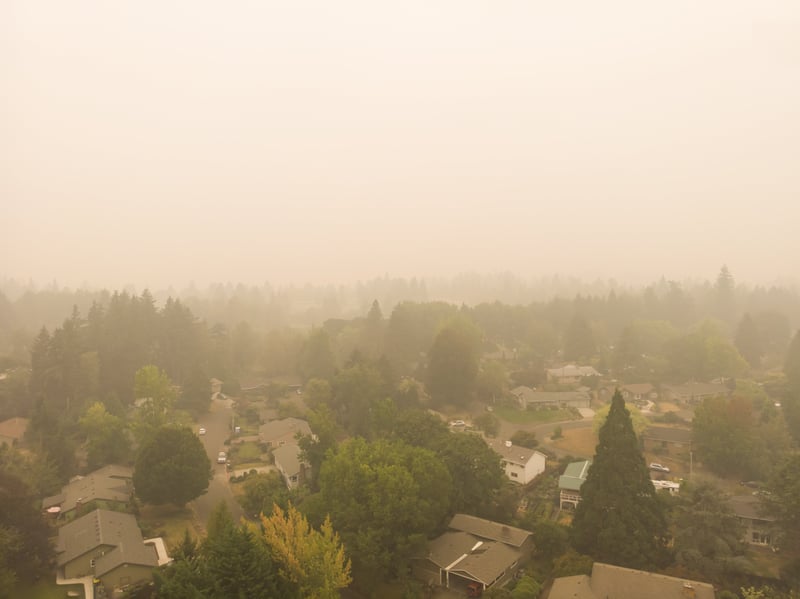Get Healthy!

- Ernie Mundell
- Posted June 9, 2023
Smoke From Wildfires Is Especially Tough If You Have Asthma. Here's How to Protect Yourself
FRIDAY, June 9, 2023 (Healthday News) -- Raging Canadian wildfires are still darkening the skies of American cities, and while the dirty air is a hazard for everyone, that's especially true for folks with asthma.
In a statement released this week, experts at the American College of Allergy, Asthma and Immunology (ACAAI) said, "It's important for everyone -- but especially children and those who suffer from asthma and other respiratory illnesses -- to stay indoors in order to not be exposed to smoke from the fires."
Fire smoke poses health threats to the respiratory system and can exacerbate lung conditions like asthma.
"Children are especially vulnerable because their lungs are less developed and they are closer to the ground, and thus more likely to take in more smoke,"the ACAAI said.
That means that if you know smoke is in the air, the best advice for you and your family is to stay inside whenever possible, the group said.
Keeping your asthma under control is always a must, but it's especially crucial at these times. Keep your medications easily available and if you're still having trouble breathing, reach out to your allergist for help, the ACAAI advised.
Keep the risk for allergens or air pollution low inside the home by avoiding cooking any foods that require frying or grilling.
Sometimes going outside is unavoidable, and putting on a simple dust mask or cloth mask might seem sensible. But the ACAAI notes that the masks many folks use against COVID-19 are not able to filter out smoke. Only a N95 mask, worn properly, can offer some protection.
If a wildfire is near and you're advised to head to a shelter, be sure to tell officials if you or someone in your family has asthma.
Asthma flare-ups can occur even after wildfires and smoke have been controlled, so keep watching out for symptoms, the ACAAI said.
"Contact your healthcare provider if you have trouble breathing, shortness of breath, a cough that won't stop or other symptoms that do not go away,"the group said. "Call 9-1-1 or go right away to an emergency department for medical emergencies."
More information
Find out more about controlling asthma at the U.S. Centers for Disease Control and Prevention.
SOURCE: American College of Allergy, Asthma and Immunology (ACAAI), news release, June 7, 2023






